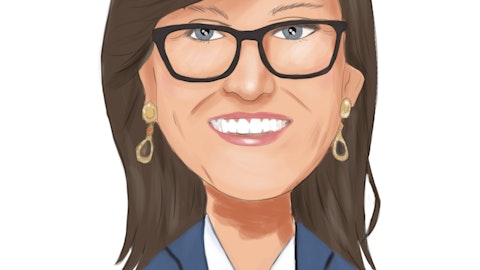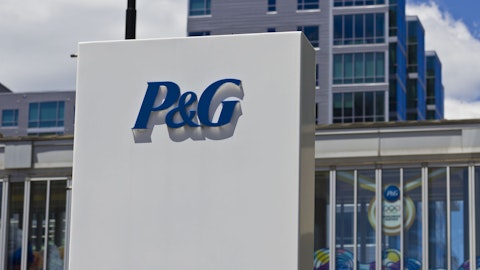João Paulo Ferreira: João, I wonder if your question is trying to — is inferring that the drop in Latin American profitability is coming from Argentina. So I just want to reinforce that that’s not the reason why you see the reduced profitability in Latin America, which comes from other effects, I can comment later, if you prefer. So — but just talking about the operation itself, preliminary data indicates that Natura &Co in Latin America defended its market share throughout the year, increasing market share in the second half; in Hispanic Latin America, Natura grew market share, whereas we lost some market share in Avon. We do see macro, socioeconomic headwinds in some countries. Chile, as you followed from other companies, consumption has dropped.
Peru in the fourth quarter had to face some political issues which lead to strikes, on street demonstrations. And in Argentina, we faced difficulties with the shortage of goods. So there were restriction in imports of goods which reflected on a softer top line growth in those countries, only partially compensated by our performance in Mexico and Colombia. As I said, Natura is — it continues to grow, albeit a bit softer than before because of these macro headwinds. And as I said, and as Guil just mentioned, in the case of Avon, we are restructuring the operation more thoroughly at this point in time, restricting Fashion and Home but by choice in preparation for Wave 2. But overall the operation is pretty healthy, as well its margin.
Guilherme Castellan: And João let me talk about the second part of your question, which is related to The Body Shop. So first, of course, let me remind everybody that from a seasonality perspective, The Body Shop has historically a very strong Q4 compared to the previous quarters, right? So that’s again the quarter where margins and cash flow for The Body Shop are the highest. In the case of The Body Shop in this particular quarter, we had some headwinds coming from gross margin, right, given the inflationary pressure. And as we also have discussed before, right, the fact that we were not that aggressive from a net price increase perspective, right, given the changes, the momentum of the retail especially in some markets and the head franchises inventory level.
So that impacted the gross margin by 350 bps negatively. But of course, through the cost containment actions that we exercised during the last part of the year, we are able to offset great part of that amount through SG&A, right? Now those actions, of course — most of them, they are structural changes and they will remain. There are some small technical changes as well — technical movements as well in the last part of the year. But it’s very important to say and to comment that our focus of rightsizing The Body Shop organization is there, right? And again, there are some actions that we disclosed that we took in the first quarter of 2023, which of course doesn’t — they don’t reflect in the numbers of last quarter, of Q4 2022, such as the closure of TBS At Home in the U.S. and the dedicated distribution center in the UK as well restructuring of the global management structure, by which we reduced leadership positions by almost 25%, and again, further headcount reductions in the rest of the global overhead staffing.
So all of those things, again, we continue to deliver in order to protect the margin of The Body Shop. So yes, it’s a big focus and we are expecting The Body Shop to improve margins compared to 2022 going forward.
Operator: The next question comes from Danniela Eiger of XP Investiment. Please go ahead.





